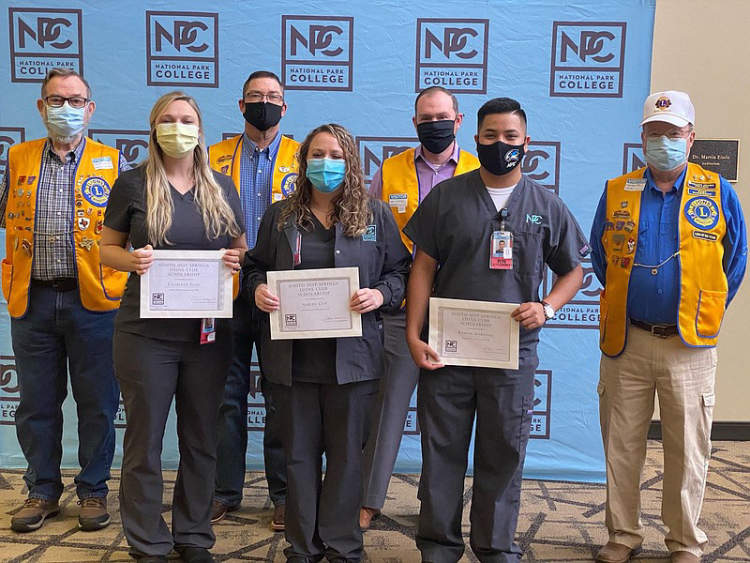As the demand for skilled nurses continues to rise, pursuing a career in nursing has become an increasingly popular choice for many individuals. However, the cost of education can often be a barrier for aspiring nursing students. Thankfully, there are numerous scholarships available specifically designed to support and aid these future healthcare professionals.
These scholarships aim to alleviate the financial burden of tuition, books, and other educational expenses, allowing students to focus on their studies and practical training. By offering financial assistance, these programs not only make higher education accessible for aspiring nurses but also ensure a steady stream of qualified healthcare professionals to meet the growing needs of the healthcare industry.
Types of Scholarships Available for Nursing Students
Nursing students who are passionate about pursuing a career in healthcare have various scholarship opportunities to support their education. These scholarships aim to alleviate the financial burden and provide opportunities for talented individuals to excel in their studies. Here are some types of scholarships available for nursing students:
1. Merit-Based Scholarships
Merit-based scholarships are awarded to nursing students based on their academic achievements, such as GPA, standardized test scores, and leadership involvement. These scholarships recognize students who have demonstrated exceptional commitment and success in their academic and extracurricular endeavors.
2. Need-Based Scholarships
Need-based scholarships are designed for nursing students who demonstrate financial need. These scholarships consider the applicant’s family income, assets, and other factors to determine eligibility. Need-based scholarships aim to bridge the gap between the cost of education and the student’s ability to pay, ensuring that deserving individuals can pursue their nursing education without financial constraints.
3. Minority Scholarships
Minority scholarships are aimed at increasing the representation of underrepresented groups in the nursing profession. These scholarships are available to students belonging to ethnic minority groups, including but not limited to African American, Hispanic, Native American, and Asian students. They are designed to promote diversity in the healthcare workforce and provide equal opportunities for all aspiring nursing professionals.
4. Organization/Association Scholarships
Many nursing organizations and associations offer scholarships to support the education of future healthcare professionals. These scholarships are often specific to the organization or association and may require membership or participation in related activities. They provide students with access to valuable resources, networking opportunities, and mentorship programs in addition to financial support.
5. State and Federal Scholarships
State and federal governments offer scholarships to nursing students as part of their efforts to increase the number of qualified healthcare professionals. These scholarships vary in eligibility criteria, application process, and funding amount. Some examples of state and federal scholarships include the National Health Service Corps Scholarship, Nursing Education Loan Repayment Program, and the Health Professions Scholarship Program.
6. Private Foundation Scholarships
Private foundations and philanthropic organizations also provide scholarships for nursing students. These scholarships are often established by individuals, families, or corporations with a focus on supporting education and healthcare initiatives. Private foundation scholarships can be merit-based, need-based, or targeted to specific populations or nursing specialties.
By exploring these various types of scholarships, nursing students can find opportunities that align with their individual circumstances and goals. It is essential for aspiring healthcare professionals to research and apply for scholarships to make their nursing education more accessible and affordable.
How Scholarships Can Support Nursing Education

Scholarships play a vital role in supporting nursing education, helping aspiring healthcare professionals pursue their dreams of becoming qualified nurses. These scholarships not only provide financial assistance but also act as a morale booster, motivating students to excel in their studies and contribute to the healthcare field. Here’s a closer look at how scholarships can support nursing education:
1. Financial Assistance
Scholarships offer much-needed financial support to nursing students, helping to cover tuition fees, books, supplies, and other educational expenses. Many nursing programs can be expensive, and scholarships help alleviate the financial burden, making education more accessible for aspiring nurses.
2. Increased Access to Education
Without scholarships, many talented individuals may be unable to pursue a nursing career due to financial limitations. Scholarships create opportunities for students from all backgrounds, ensuring that nursing education is accessible to those with a genuine passion for healthcare. This increased access to education promotes diversity and inclusion in the nursing profession.
3. Encouragement and Recognition
Receiving a scholarship is not only a form of financial aid but also an acknowledgment of a student’s hard work, dedication, and potential. It serves as a morale booster, boosting students’ confidence and encouraging them to strive for academic excellence. Scholarships recognize and reward deserving nursing students, motivating them to succeed.
4. Professional Development Opportunities
Some scholarships not only provide financial support but also offer professional development opportunities. These may include mentoring programs, internships, or networking events where students can connect with experienced healthcare professionals, enhancing their skills and knowledge in the field. Such opportunities pave the way for a successful nursing career.
5. Addressing the Nursing Shortage
Scholarships for nursing students play a crucial role in addressing the global nursing shortage. By offering financial assistance and support, scholarships attract individuals to pursue nursing education and fill the gaps in healthcare staffing. This, in turn, contributes to improved patient care and health outcomes.
In conclusion, scholarships provide invaluable support for nursing education. They create opportunities for aspiring nurses, provide financial assistance, and recognize students’ hard work. By investing in scholarships for nursing students, we can help cultivate a skilled and diverse nursing workforce, ultimately benefiting the healthcare industry and society as a whole.
Application Process and Requirements for Nursing Scholarships
Obtaining a scholarship as a nursing student can greatly assist in achieving your educational and career goals. By understanding the application process and requirements for nursing scholarships, you can improve your chances of receiving financial aid to support your studies. Below are the key steps and criteria involved:
1. Research:
Begin by researching the various nursing scholarships available. Consider both private and public sources, as well as organizations and foundations that offer funding for nursing students. You can search online databases, visit your school’s financial aid office, or reach out to nursing associations for scholarship opportunities.
2. Eligibility Criteria:
Review the eligibility criteria for each scholarship you are interested in. Typically, these criteria include factors such as academic performance, financial need, community service involvement, and specific nursing program requirements. Make sure you meet all the necessary qualifications before proceeding.
3. Prepare the Application:
Gather all the required documentation and materials for the application. This may include transcripts, letters of recommendation, a personal statement or essay, proof of financial need, and any additional requirements specified by the scholarship provider. Pay attention to deadlines and ensure that you complete the application accurately and thoroughly.
4. Scholarship Essays:
Many nursing scholarships require applicants to write essays. Take the time to craft a compelling and well-written essay that highlights your passion for nursing, your career aspirations, and how the scholarship will help you achieve your goals. Tailor each essay to the specific scholarship requirements.
5. Letters of Recommendation:
Ask professors, supervisors, or mentors who know you well to write letters of recommendation on your behalf. Choose individuals who can speak to your academic abilities, work ethic, and commitment to the nursing profession. Provide them with any necessary guidelines or forms requested by the scholarship program.
6. Submitting the Application:
Complete the application process by submitting all required documents within the specified deadline. Make sure to follow the instructions provided by the scholarship provider regarding the submission method, whether it’s through an online portal, email, or mail. Keep copies of all your application materials for your records.
7. Follow-Up:
After submitting your application, follow up with the scholarship provider to confirm receipt of your documents and inquire about the selection timeline. This demonstrates your continued interest and engagement. If contacted for an interview or further evaluation, prepare yourself by researching common interview questions and practicing your responses.
8. Financial Aid Office:
Work closely with your school’s financial aid office to explore additional funding options, including grants, loans, and work-study programs. They can provide guidance on scholarships specifically available to nursing students and offer support throughout the application process.
By understanding and following these steps, you will be well-prepared to apply for nursing scholarships and increase your chances of receiving financial assistance to pursue your nursing career.
Conclusion
Scholarships for nursing students play a crucial role in supporting the education and development of future healthcare professionals. These scholarships provide financial aid to aspiring nurses, allowing them to pursue their academic goals without the burden of excessive student loans.
With the rising costs of education, these scholarships open doors of opportunity for students who may otherwise struggle to afford the necessary training and education. By providing financial assistance, scholarships help to ensure that talented and dedicated individuals have the opportunity to join the nursing profession and contribute to the healthcare industry.




